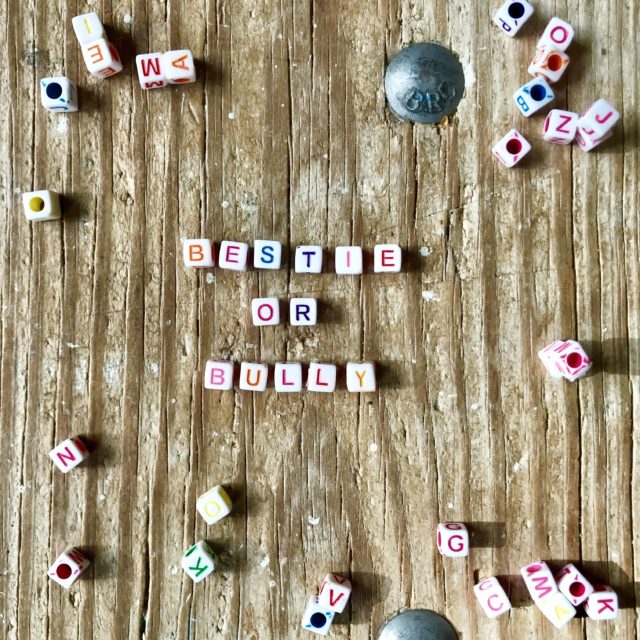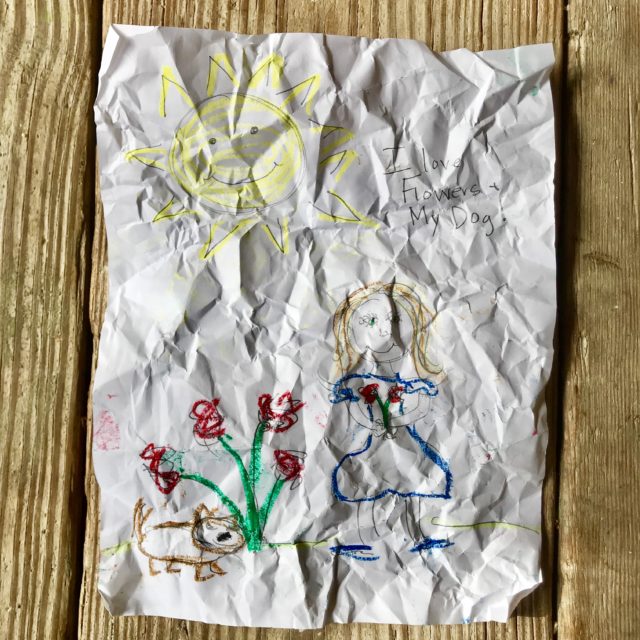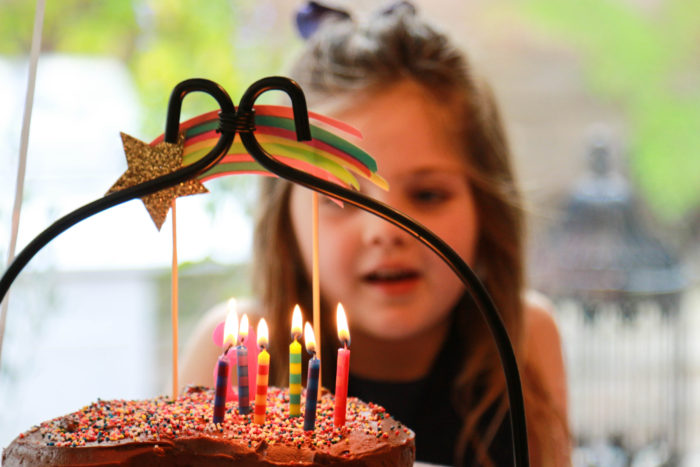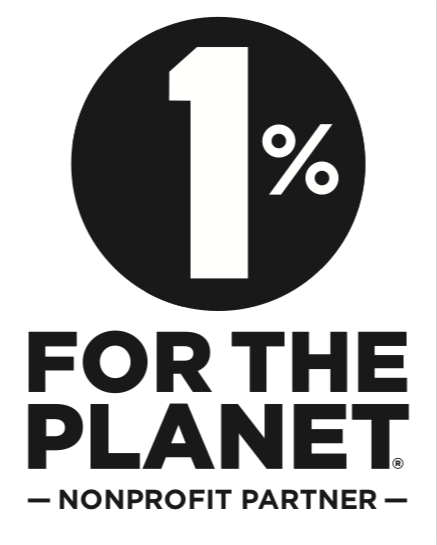
“Besties” or Just Plain Bully, What Message Are We Sending?”
Post written by, Vanessa Cole
December 1, 2017
THIS POST PROMPTED NBC'S PARENT TOOLKIT RESOURCE TO RALLY 3 OF THEIR EXPERTS TO WEIGH IN ON THE SUBJECT WHEN PROMPTED BY OUR FOUNDER'S QUESTION. VISIT THE PARENT TOOLKIT ARTICLE AFTER READING OUR POST! VISIT PARENT TOOLKIT ARTICLE NOW.
I once attended a 6 & 7 year old birthday party with my daughter. She was very excited putting on her "fancy" dress before the party, carefully choosing her friend's gift and wondering, in her child's mind, what treasures would be bestowed once she got there! We walked up to the house of her friend, and heard the sound of laughing children inside. My daughter looked up at me and smiled with excitement. When the door opened we were greeted with a warm welcome from her friend's mother. She pointed me in the direction of a room where all the adults were chatting. Then, my daughter was taken to a beautifully decorated party room, where some other children were already playing. After my daughter was introduced and the parent left, she was greeted by the birthday girl meekly standing behind another young girl, who tightly gripped the birthday girl's hand and said to my daughter, "Alexa (name changed for privacy) is my bestie! See our dresses and pigtails? They're the same. We have the same friendship lip gloss, too. I'm sitting by her. You can't sit next to us." And so the party went, without a single intervention from any parent at any time. Unfortunately, this group of children weren't from school so there were few other friends that my daughter knew, and they ALL knew each other. Eventually, my daughter found other children to connect enough with & had a good time, which made me proud of her resilience. Although, she did feel the sting of being left out and the happy spirit she entered the party with was replaced with a life lesson I'm not sure we all need to learn.
In this case, the life lesson was also a learning opportunity lost. Why didn't one parent take the opportunity to teach kindness and inclusion with a group of 6 & 7 year olds? Why didn't I?! Isn't that our job at their age? To teach our children, as opportunities present themselves, the life lessons to help them grow into good, kind people?
If we, as parents, in real time situations, don't take the opportunities,
WHY DON'T WE?
My husband and I make great efforts NOT to teach our kids to have best friends, instead focusing on having an open heart to any friend who wants to share our children's life or experiences--- we tell them, this will bring them more happiness, and we hope for that. We also try to teach our children that when they separate themselves with "best friends" they hurt other people's feelings, making them feel left out and they also lose out on potentially great friendships they close their mind to. These efforts are continuous, because they are children and need guidance. In a magical unicorn world this would all work out well and kids would be accepting of one another with open arms after one conversation or art lesson... we all know, this will never be the case. Instead, we know that good people take a lot of effort to nurture into existence and unfortunately, when you are the parents who are teaching these lessons, you're also the parents who have to embed a great deal of resilience for what your child's heart will feel.
After the party, I mentioned the experience to a teacher friend, who sees this type of behavior ALL THE TIME in her classroom. She shared with me, a lesson she teaches her students. An activity where she discusses unkind words and exclusion of others and how these experiences hurt people. She explains to her students that these life experiences leave a mark on the other person, forever. She has her students draw an image of them self; colorful, with details they like about themselves. Then she has the students crumple the paper in their hand, as they discuss their own experiences that may have been unkind or non-inclusive and then has her students try to pull the paper straight again. She has the students note that no matter how hard they try, the paper will never be completely straight again, that the impression is made. She also explains that the child who has been hurt does have an opportunity. They can learn from the experience and build resilience and good character from the challenge. Learning to treat others with kindness and acceptance, instead, and understanding that words are powerful--- they can hurt or they can help people and we all have this choice, even a child who has been hurt.

I wonder how the young girls at the party might have behaved if they had had this lesson in their classroom that week and then this life experience was followed up by a parent, like myself, seizing the opportunity to guide. Gently prompting the girls to work together in kindness. Perhaps something like: "It seems like some of us feel a little left out, how can we work together to be sure we're all having fun today?!" I wonder how the other parents might have reacted. Would they have been supportive or defensive?
I will admit, it can be very tempting and seemingly innocent to embrace the adorable young "bestie culture". Isn't it cute when they want to wear their hair the same and dress in the same outfits, and talk the same and hold hands and bop through school confident in their little bestie club of all the same...
IS IT ADORABLE? Or is it just the makings of bully behavior that is validated in a Pinterest culture? And what part are we playing when we promote the ideas and celebrate this "bestie" relationship? Are we promoting friendship or are we guiding our little people right into a problem so heavy in our society that it can later steal from our children's social and academic achievement, contribute to exclusion and bully behavior and most devastatingly, may ultimately, contribute to anxiety and even suicide in children. Isn't it better to just teach them to be a community & celebrate differences instead?
I truly believe that no child MEANS to be MEAN.
As a parent of two, I believe it is learned behavior and with solid, intervention strategies, I also believe we can guide ALL children toward kinder behavior and by making THIS EFFORT we can build better humans, more inclusive communities and a better world through our children. But, to get here, we have to be willing to take the teaching moments and know what to do in them to be truly effective. These real efforts will take support and guidance for our children and for US.
I wish I had taken the learning opportunity at that party. I wish I had known what to do in that moment that would have taught them a kind, quiet lesson of inclusion.

After this experience I asked myself, what do we want to teach our kids so they learn about friendship, kindness & compassion and how will we consciously reach these goals?
I've spent some time exploring this question, and a few others... and found, it WILL TAKE A VILLAGE to support kind, compassionate kids. As well as a value for building these life skills in our schools. I believe, by reaching out to our parent AND educator communities to open communication lines on these real issues, we can effectively engage tools that will support us and our children to work together. The goal to raise not only KIND, compassionate people, but thriving people, will require learning more about the ways we can help guide our children more effectively, together... in developmentally appropriate, gentle & respectful ways AND modeling those ways ourselves... at home, in school and in our communities.
Become a member of AddyPresLifeSTYLE today and take part in our work toward thriving communities!

